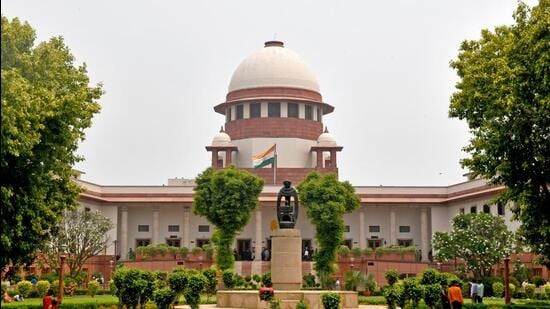Lagatar24 Desk
New Delhi: The Supreme Court is set to hear a batch of petitions on December 12 challenging the constitutional validity of certain provisions of the Places of Worship (Special Provisions) Act, 1991. A Special Bench, headed by Chief Justice Sanjiv Khanna and comprising Justices Sanjay Kumar and KV Viswanathan, will preside over the matter.
The 1991 Act prohibits legal claims to alter the religious character of places of worship as they stood on August 15, 1947. The law, however, excludes the Ram Janmabhoomi-Babri Masjid site from its purview.
Petitioner’s Arguments
One of the primary petitions, filed by advocate Ashwini Upadhyay in March 2021, argues that the Act infringes on fundamental rights. It contends that the legislation was enacted under the guise of “public order,” a State subject, and takes away the rights of Hindus, Jains, Buddhists, and Sikhs to reclaim their religious sites.
“The Act excludes the birthplace of Lord Rama but includes that of Lord Krishna, despite both being incarnations of Lord Vishnu, making it arbitrary and discriminatory,” the petition asserts.
Gyanvapi Mosque Committee’s Intervention
The Managing Committee of Varanasi’s Gyanvapi Mosque has moved to dismiss the petitions, asserting that striking down the 1991 Act would have dire consequences for communal harmony and the rule of law.
In its submission, the committee emphasized that the Act was a deliberate legislative decision aimed at fostering secularism and fraternity. “The Act ensures the past does not haunt the future of the country,” the application stated, urging the Supreme Court to reject the petitions as lacking merit.
The committee further noted that nullifying the Act would lead to disputes in every corner of the country. It cited recent events in Sambhal, Uttar Pradesh, where a court-ordered survey of the Shahi Jama Masjid sparked violence, resulting in the deaths of at least six individuals.
Implications for Gyanvapi Mosque
The committee also highlighted the ongoing legal battles surrounding the Gyanvapi Mosque, where over 20 cases are pending in Varanasi courts. These cases challenge the mosque’s protection under the 1991 Act and seek its reclassification as a temple.
It warned that a ruling against the Act would embolden such disputes, leading to widespread unrest and undermining the principles of secularism and communal harmony enshrined in the Constitution.







